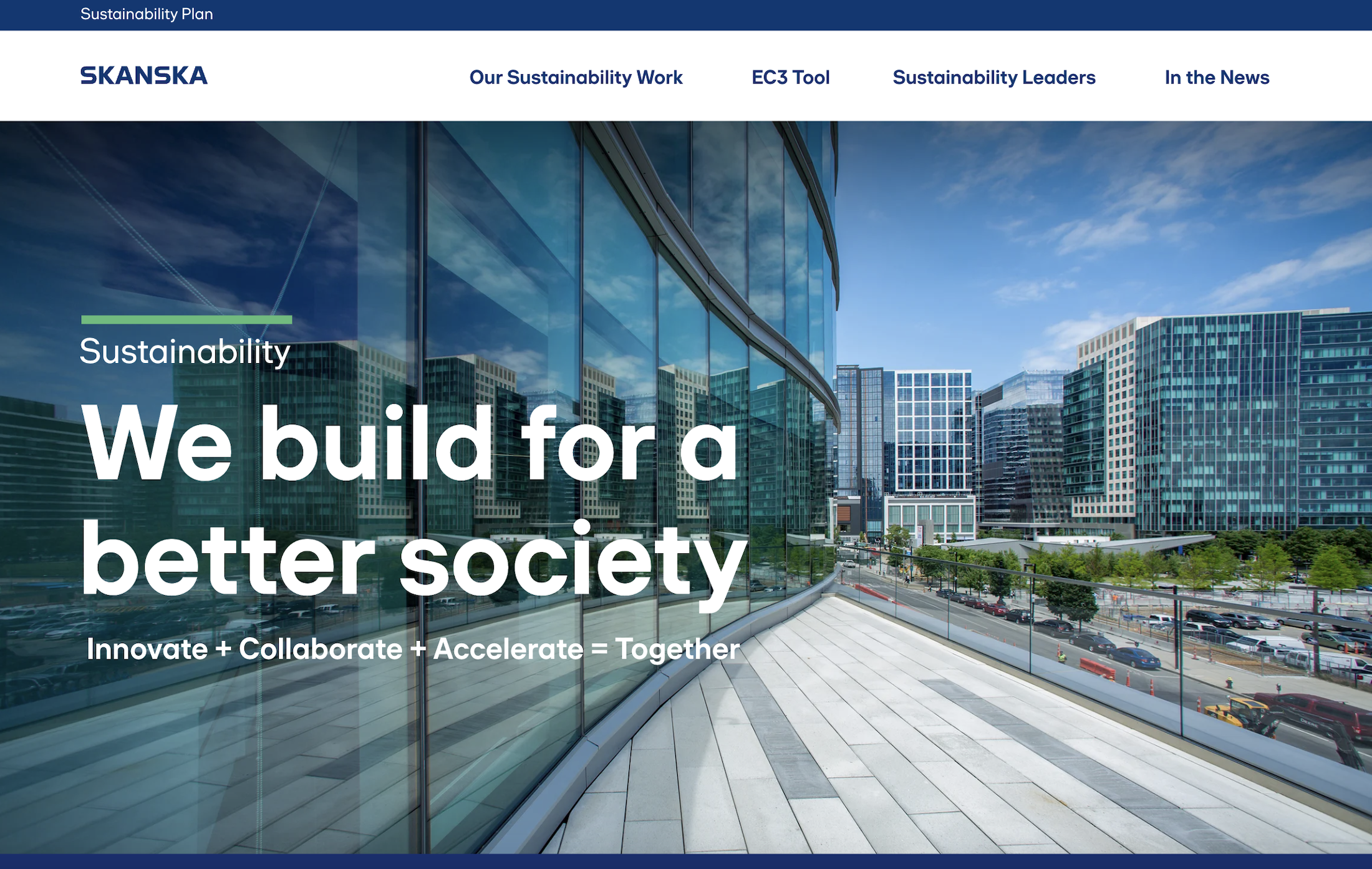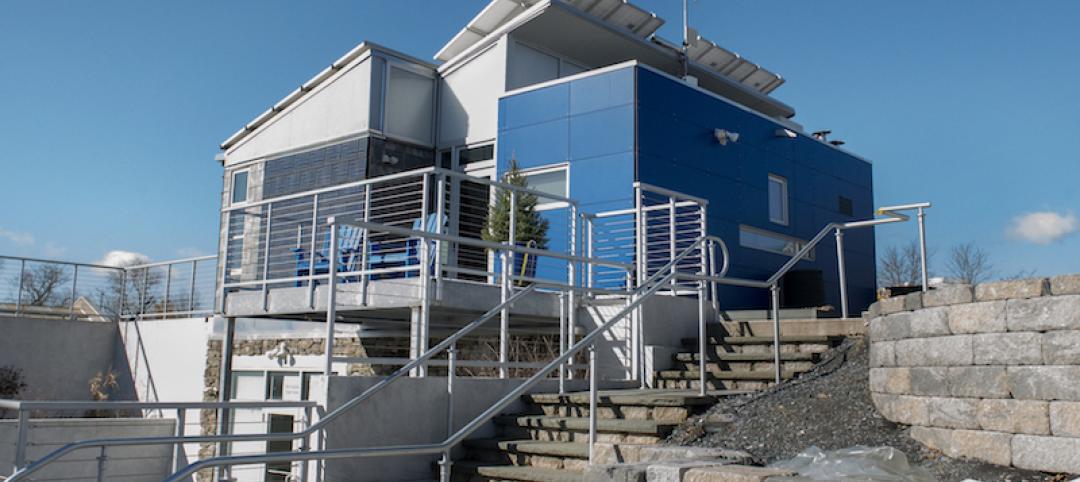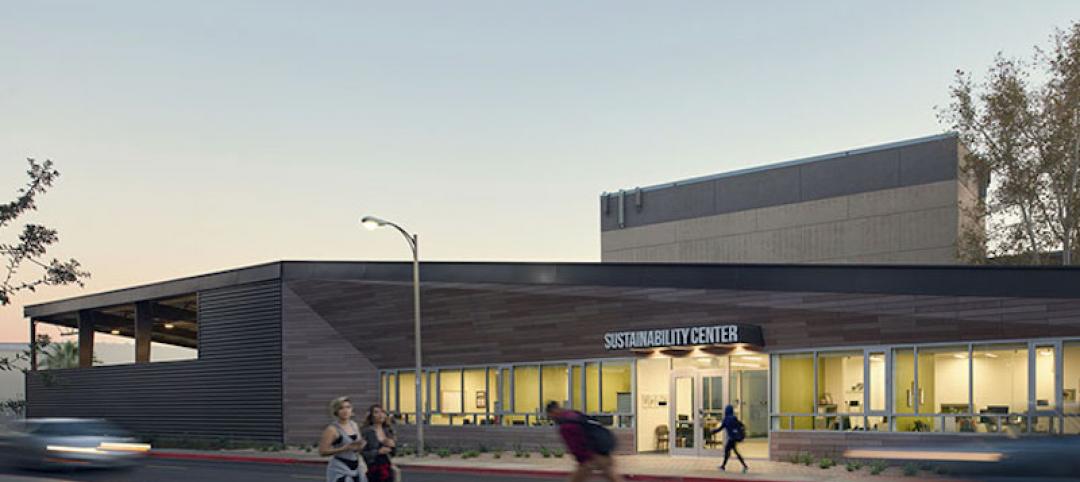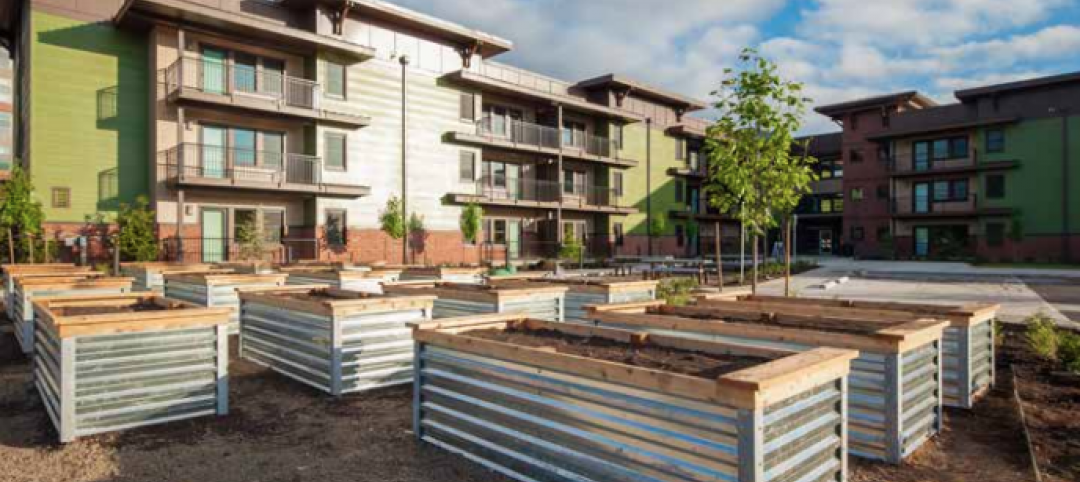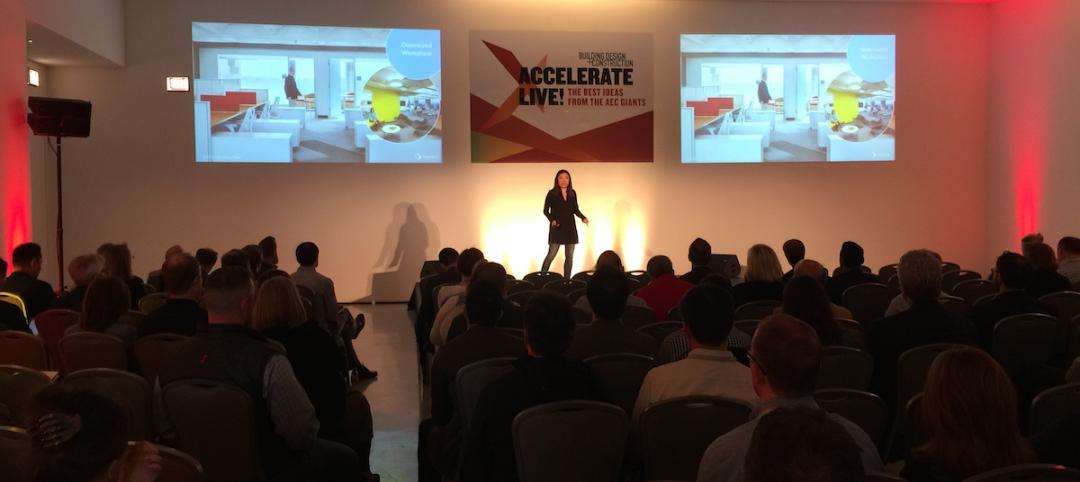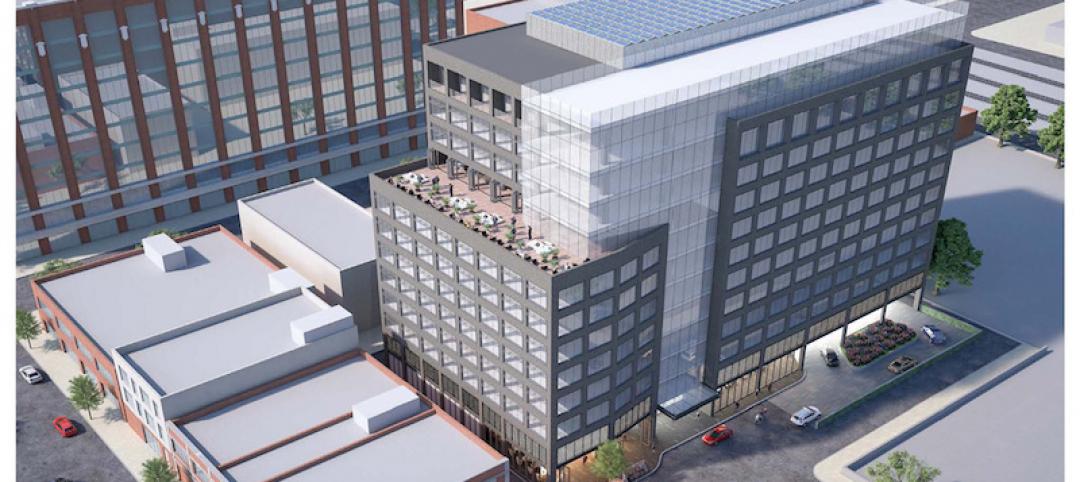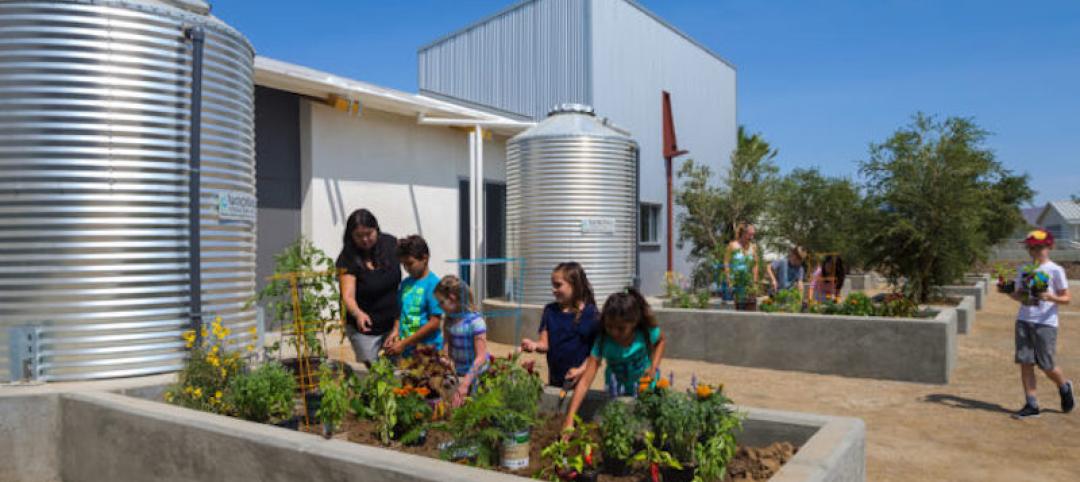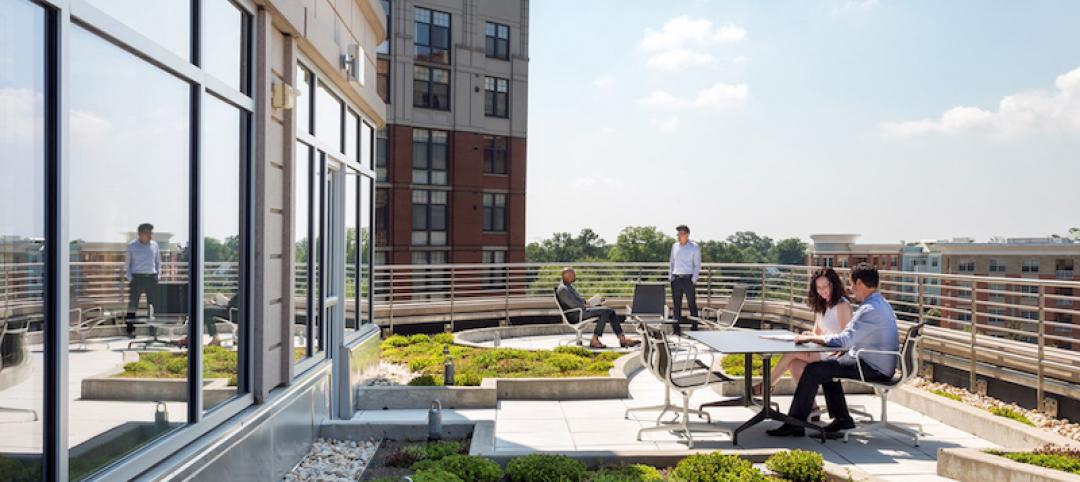Skanska, a global leader in sustainable building, has restructured its Sustainability Team to better serve client and company goals. Co-led by Steve Clem and Myrrh Caplan, who together bring decades of experience, the team will allow Skanska to continue to set the bar for the industry.
“Steve and Myrrh are central to our commitment to sustainability,” said Steve Stouthamer, Executive Vice President, Project Planning, Skanska USA Building. “As Senior Vice Presidents, they’ll leverage Skanska’s global and domestic initiatives to protect our environment and ensure the resilience of the communities we build in. By harnessing their collective expertise, we can make significant strides toward our decarbonization goals while continuing to set the bar for sustainable industry practices.”
With Clem and Caplan at the helm, Skanska is well positioned to support clients and maximize opportunities for sustainability consulting, as state and federal agencies implement stricter sustainability requirements for buildings and construction. Skanska’s robust Sustainability Team, located throughout the country, will continue supporting Clem and Caplan with helping clients meet and exceed their sustainability goals, advancing industry and client outcomes through innovation and research, and identifying opportunities to create more value-add solutions.
Since joining Skanska as a Project Manager in 2005, Caplan has helped shape Skanska’s national approach to sustainable building. She established the company’s first national Green Construction program and chaired Skanska’s first National Green Council. Throughout the past decade, she has managed multiple initiatives including carbon lifecycle analysis and efforts that benefit clients and the industry. Caplan leads Skanska's National Sustainability Team, made up of consultants and advisors.
Caplan was named a 2022 LEED Fellow by the U.S. Green Building Council (USGBC), one of twenty professionals from around the world recognized for their work in advancing green building practices. To date, Caplan has advised on nearly 300 certified projects and projects seeking LEED, Living Building Challenge, WELL, Envision, and other certifications. In 2023, Caplan co-created the Associated General Contractors of America Task Force on Decarbonization and Carbon Reporting to address the challenges around reporting and reducing carbon emissions within construction. She sits on the board of mindfulMaterials, serves on several industry committees, and participates in research with key partners.
Steve Clem joined Skanska as a project engineer in 1997 and over the years, established himself as one of Skanska’s staunchest sustainability leaders. In his role, Clem is responsible for setting and achieving Skanska’s decarbonization goals in the United States and works with construction teams to identify sustainable procurement solutions for clients including the use of mass timber. Clem’s efforts to reduce the industry’s embodied carbon began over 15 years ago and he has been influencing procurement with the Embodied Carbon in Construction Calculator (EC3 Tool) since Skanska co-created and launched the tool in 2019. Clem has also authored multiple cost studies that demystify the adoption of environmentally preferable construction strategies.
Clem spearheaded Skanska’s early participation in the Living Building Challenge – first with the influential Living Building Challenge Financial Study and then with the Bertschi School project. He holds certifications from the US Green Building Council, International Living Future Institute, and OSHA, among other accrediting agencies. Clem is also president of the construction safety non-profit, SafeBuild Alliance, and sits on the board of Building Transparency, which manages the EC3 Tool.
The built environment accounts for nearly 40 percent of carbon emissions globally, with approximately 11 percent embodied in construction materials and an estimated 28 percent stemming from building operations. To reduce its impact on the planet, Skanska has had a long trajectory of environmental accomplishments under Clem and Caplan’s leadership:
- Skanska set an ambitious target to achieve carbon neutrality by 2045 in its own operations and across its entire value chain. As an interim target, its development operations aim to achieve a 70 percent reduction by 2030.
- Skanska has been working on mass timber projects for more than a decade, improving construction schedules while reaping the environmental, health, and aesthetic benefits.
- Skanska has delivered over 44 million square feet of space that has been certified across several systems including LEED®, Envision™, Green Globes, Fitwel and Living Building Challenge. On our own development projects, we target a minimum of LEED® Gold, with many projects achieving LEED Platinum.
- Skanska supports the United Nations Sustainable Development Goals to address issues like climate action, sustainable cities and communities, and responsible consumption and production.
- Skanska is ISO 14001 certified to ensure consistent environmental performance and continuous improvement. Skanska’s ISO 14001 certification program has been recognized by the U.S. Green Building Council.
- Skanska partners with organizations to transform the industry, investing in research and technology, and pioneering sustainable construction practices.
More Information on Skanska’s Sustainability Initiatives:
About Skanska
Skanska uses knowledge & foresight to shape the way people live, work, and connect. More than 135 years in the making, we’re one of the world’s largest development and construction companies. We operate in select markets throughout the Nordics, Europe and the United States. Skanska in the U.S. is headquartered in New York City with 29 offices around the country. In 2022, construction in the U.S. generated $6.9 billion in revenue, and as a developer in the U.S., Skanska has invested a total of $3.5 billion in commercial and multi-family projects. Together with our customers and the collective expertise of our 6,500 teammates in the U.S. and 28,000 globally, we create innovative and sustainable solutions that support healthy living beyond our lifetime.
Related Stories
Sustainability | Sep 10, 2018
At Penn State, sustainability is more than a goal
The university, encompassing 13 colleges and 24 campuses, adheres to protocols established by the UN.
Green | Aug 15, 2018
What if your neighborhood could make you healthier?
The WELL Community Standard equips planners to build health promotion into the very fabric of neighborhoods.
Energy | Aug 6, 2018
Will California lead the way to energy independence?
The architecture, engineering, and construction industry will have to make major adjustments in the years ahead now that many state, city and local governments are getting serious about creating a carbon neutral buildings sector.
Multifamily Housing | Jun 27, 2018
To take on climate change, go passive
If you haven’t looked seriously at “passive house” design and construction, you should.
Accelerate Live! | Jun 24, 2018
Watch all 19 Accelerate Live! talks on demand
BD+C’s second annual Accelerate Live! AEC innovation conference (May 10, 2018, Chicago) featured talks on AI for construction scheduling, regenerative design, the micro-buildings movement, post-occupancy evaluation, predictive visual data analytics, digital fabrication, and more. Take in all 19 talks on demand.
Sustainability | Jun 13, 2018
Largest Passive House office building in the U.S. will be built in Chicago’s West Loop
Solomon Cordwell Buenz is designing the building.
| Jun 11, 2018
Accelerate Live! talk: Regenerative design — When sustainability is not enough
In this 15-minute talk at BD+C’s Accelerate Live! conference (May 10, 2018, Chicago), HMC’s Eric Carbonnier poses the question: What if buildings could actually rejuvenate ecosystems?
| May 30, 2018
Accelerate Live! talk: T3 mass timber office buildings
In this 15-minute talk at BD+C’s Accelerate Live! conference (May 10, 2018, Chicago), architect and mass timber design expert Steve Cavanaugh tells the story behind the nation’s newest—and largest—mass timber building: T3 in Minneapolis.
Sustainability | May 16, 2018
Sustainability is dead: Regenerative architecture is the new green
Is sustainability a model that our culture should adopt and promote knowing that the bucket will one day be empty?
Sustainability | Apr 18, 2018
The 10 sustainability trends that forward-thinking organizations have on their minds
The future office strives to be better, focus more on the people who inhabit it, and contribute to the success of the company.


